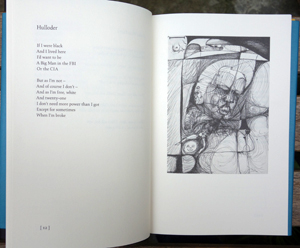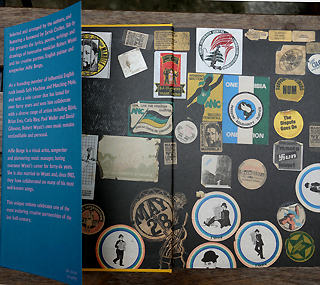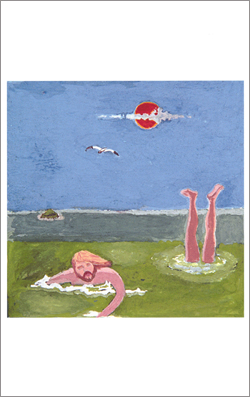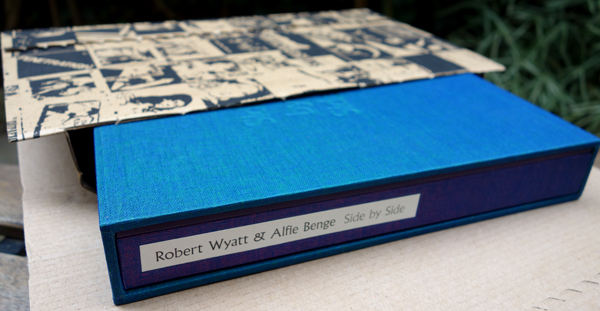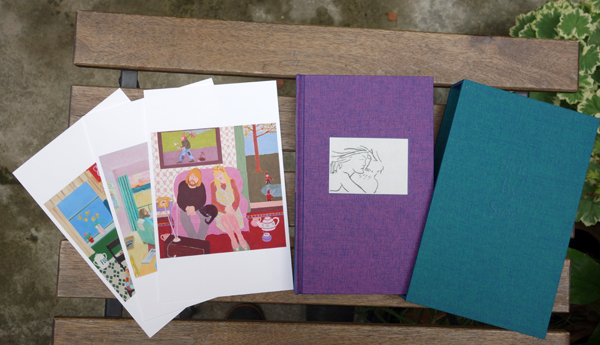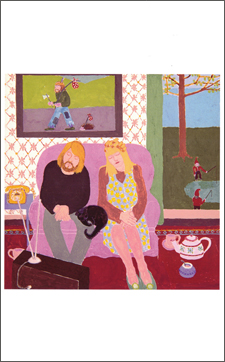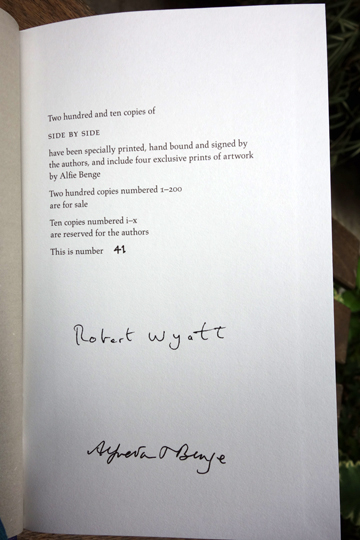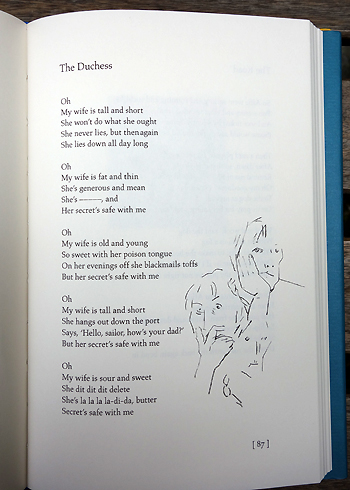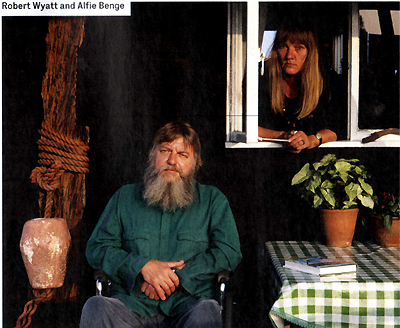 Side By Side: Selected Lyrics
Side By Side: Selected Lyrics
Robert Wyatt & Alfie Benge
Faber & Faber Hbk 204pp
Side By Side is a beautiful testament to Robert Wyatt and Alfie Benge's relationship, both as husband and wife, and as artistic collaborators. Featuring paintings and sketches alongside the lyrics, this is a much richer experience than your standard lyrics collection. Benge, writes Wyatt in his introduction, is "at the heart of everything I've done since the mid-1970s... We live and work side by side." Her artwork gave Wyatt's solo albums their visual identity, and from 1982 onwards, she contributed many of the lyrics for his songs.
Fittingly, Wyatt's career as a singer-songwriter is bookended by two of the great relationship songs, "Sea Song" and "Just As You Are". The former, from 1974's
Rock Bottom, is a declaration of love that's all the more moving for its honesty. Wyatt begins with a dreamlike vision of Alfie as a sea creature, "
partly fish, partly porpoise, partly baby sperm whale". She astonishes him, but a note of uncertainly creeps in as he struggles to reconcile the romantic ideal with the everyday reality of a relationship: "
I can't understand the different you, in the morning when it's time to play at being human for a while". Yet he knows that their love is worth it, telling Alfie, "
Your madness fits in nicely with my own".
Benge's "Just As You Are", from 2007's
Comicopera, was written when Wyatt's drinking had become a serious problem. As she writes, "I was unsure if I could put up with life with a permanent drunk." In her part of the song, voiced on the record by Monica Vasconcelos, Benge wonders whether she should leave
Wyatt or accept his flaws. She adds a response from Wyatt's perspective, in which he acknowledges his addiction while reiterating his unconditional love. There's no pat resolution, but Wyatt sought help and has been sober for many years.
These songs are snapshots of an ongoing conversation. Benge responds to "Sea Song" with a cartoon strip. His "alcodelic dreamscapes" are affectionately transplanted to the domestic realm, with the couple sitting in the bath and staring out of windows. This isn't to suggest that Benge is the realist to Wyatt's surrealist - her
Rock Bottom artwork realises his aquatic visions in teeming seabeds and swimmers who vibrate with colour. While her lyrics are more observational, they have an imagist charge suggestive of William Carlos Williams at his most empathetic. Take "December", with its
Senegalese trinket seller roaming Spanish beaches to make money to send back home. On one level it's a simple human story, yet it's deeply informed by Benge and Wyatt's socialism and internationalism.
Wyatt's political songs of the 1980s remain remarkably pertinent. We're living with the consequences of the neoliberal individualism he skewers in "The Age Of Self", and the American imperialism he depicts in "Amber & The Amberines". His and Benge's War On Terror era songs are equally powerful, from the chilling "Out Of The Blue" to the deeply touching "Lullaby For Hamza". These songs bear witness and express solidarity - they never patronise or hector. They're also beautiful works of art, embodying Brecht's motto: "In the dark times, will there also be singing? Yes, there will also be singing. About the dark times."
Stewart Smith




